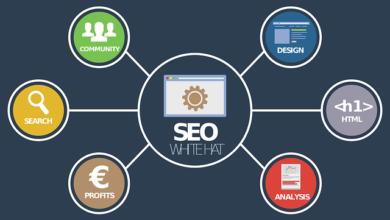Shopify Comparison With Other E-commerce Platforms: Which Offers Better Design Options?

Introduction
In the world of e-commerce, where first impressions matter immensely, the design of your online store plays a pivotal role in attracting and retaining customers. With numerous e-commerce platforms, choosing the right one with the best design options can be daunting. In this article, we’ll explore Shopify comparison with other leading e-commerce platforms. If you’re looking for a Shopify website designer or considering your design options, this guide is for you.
Shopify’s Design Capabilities
Regarding design, Shopify is renowned for its versatility and customization options. As a Shopify website designer, you’ll appreciate the following features:
- Diverse Theme Selection: Shopify boasts a vast collection of professionally designed themes and templates that cater to various industries and styles. Whether you’re selling fashion, electronics, or handmade crafts, you’ll find a theme to match your brand.
- User-Friendly Builder: Shopify’s drag-and-drop website builder makes it accessible to technical and non-technical users. Without coding knowledge, you can effortlessly customize your store’s layout, colors, and typography.
- Sections for Design Flexibility: Shopify’s unique ‘Sections’ feature lets you quickly arrange and customize your store’s homepage. Add, remove, or rearrange content blocks to achieve the desired look and feel.
- Responsive Design: In today’s mobile-centric world, responsive design is crucial. Shopify themes are designed to adapt seamlessly to different screen sizes, ensuring a consistent user experience on desktop, tablet, and mobile.
Other E-commerce Platforms
While Shopify excels in design, considering alternatives is essential. Here are some popular e-commerce platforms to weigh against Shopify:
- WooCommerce: As a WordPress plugin, WooCommerce offers design flexibility through various themes and extensive customization options. However, it requires more technical know-how.
- BigCommerce: BigCommerce provides robust design capabilities and is known for its scalability. It offers a range of themes and customization options, but some may find it less user-friendly than Shopify.
- Magento: Magento is a highly customizable platform suitable for large enterprises. While it offers unparalleled design freedom, it’s complex and may be better for beginners or small businesses.
- Wix: Wix offers an intuitive website builder with e-commerce functionality. It’s user-friendly, but design flexibility may be limited compared to Shopify.
Shopify vs. WooCommerce
Let’s delve deeper into a specific comparison, Shopify vs. WooCommerce, to see how design options stack up.
- Shopify vs. WooCommerce: Shopify’s drag-and-drop builder and extensive theme library provide a straightforward approach to design. WooCommerce, on the other hand, offers design flexibility through WordPress themes and plugins but requires more technical expertise. Depending on your comfort level with design and development, one may suit you better as a Shopify website designer.
Shopify vs. BigCommerce
Now, let’s compare Shopify to another platform, such as BigCommerce, regarding design.
Shopify vs. BigCommerce: Both platforms offer robust design capabilities, but BigCommerce may have a steeper learning curve. Shopify’s user-friendly design tools make it a strong choice for those seeking an intuitive design experience.
Shopify vs. Magento
Shopify and Magento are both popular e-commerce platforms. Still, they cater to different market segments and offer distinct design options. Let’s compare Shopify vs Magento from a design perspective to help you make an informed choice as a Shopify website designer.
Shopify’s Design Simplicity
Shopify is renowned for its user-friendly interface and design flexibility. As a Shopify website designer, you’ll appreciate the following aspects:
- Theme Selection: Shopify offers an extensive range of professionally designed themes and templates that cater to various industries and styles. Whether working in a fashion store, electronics shop, or artisanal marketplace, you can easily find a theme that aligns with your client’s brand.
- Ease of Use: The platform’s drag-and-drop website builder is exceptionally intuitive. This accessibility means you can customize your store’s layout, colors, and typography without extensive coding expertise. This simplicity is ideal for experienced designers and those new to e-commerce design.
- Sections for Quick Customization: Shopify’s ‘Sections’ feature is a unique offering that simplifies customization. With it, you can easily add, remove, or rearrange content blocks on your store’s homepage, providing an excellent user experience. This feature is precious for creating unique and engaging storefronts.
- Mobile Responsiveness: In the era of mobile commerce, responsive design is essential. Shopify themes are designed to adapt seamlessly to various screen sizes, ensuring your store looks and functions well on desktops, tablets, and mobile devices.
Magento’s Advanced Design Capabilities
On the other hand, Magento is known for its advanced design capabilities, making it a choice for larger enterprises and businesses with complex design needs:
- High Customization: Magento offers a high level of design customization. You have extensive control over the design elements, allowing you to create unique and tailored online stores. This level of customization is ideal for businesses with specific design requirements.
- Scalability: Magento is known for its scalability, making it suitable for businesses with plans to expand rapidly. However, this scalability often comes with a steeper learning curve and more complex design processes.
- Open Source Freedom: Magento is an open-source platform allowing developers to modify deep code. This freedom can be a double-edged sword, as it allows for unlimited design possibilities but may require more development expertise.
- Enterprise-Grade Features: Magento is designed with enterprise-level businesses in mind, offering advanced features for managing large catalogs, complex product variations, and multilingual websites.
Choosing Between Shopify and Magento as a Designer
Your choice between Shopify and Magento as a designer depends on several factors:
- Client Needs: Consider the specific needs of your client. Shopify’s simplicity and flexibility may be an excellent fit for smaller businesses or startups with straightforward design requirements. However, suppose your client has a large catalog, complex design specifications, or requires extensive customization. In that case, Magento might be the better choice.
- Budget: Magento’s extensive design capabilities often come with higher development costs. With its user-friendly interface, Shopify can be more cost-effective for businesses with limited budgets.
- Development Expertise: If you have a high level of coding expertise and enjoy the freedom to customize every aspect of a website, Magento may be appealing. On the other hand, if you prefer an intuitive design process that requires less coding, Shopify is a more straightforward choice.
Factors to Consider
As a Shopify website designer, it’s essential to consider various factors when choosing an e-commerce platform for your clients or projects:
- Ease of Use for Non-Technical Users: Shopify’s user-friendly interface makes it accessible to beginners.
- Design Flexibility and Customization Options: Shopify’s drag-and-drop builder and theme library provide ample customization.
- Available Themes and Templates: Shopify offers a diverse collection, ensuring a suitable theme for every niche.
- Mobile Responsiveness: Shopify themes are designed to be mobile-responsive out of the box.
- SEO-Friendliness: Shopify includes built-in SEO features to help improve search engine rankings.
- Integration with Third-Party Apps and Tools: Shopify’s App Store offers many integrations to enhance functionality.
- Cost Considerations: Consider the platform’s pricing structure and how it aligns with your project budget.
Conclusion
In the realm of e-commerce design, Shopify shines as a platform that caters to the needs of both beginners and experts. Its rich collection of themes, user-friendly builder, and design-focused features make it a top choice for Shopify website designers. While other platforms like WooCommerce and BigCommerce offer robust design options, Shopify’s accessibility and ease of use set it apart.
Ultimately, the choice between Shopify and other e-commerce platforms depends on your specific project requirements and design expertise. Whether you’re a seasoned Shopify website designer or a newcomer to e-commerce design, Shopify’s design capabilities make it a formidable contender in the e-commerce landscape.
Contact our team of experts for personalized advice on selecting the right platform for your design needs. We’re here to help you create stunning, conversion-focused e-commerce websites.





